Skill Learn

How long does it take to learn how to swim ?
The time it takes to learn how to swim varies depending on age, natural ability, practice frequency, and instruction quality. Children generally learn faster than adults due to their curiosity and flexibility. Consistent practice is crucial for developing muscle memory, and having a qualified instructor can significantly impact the learning curve. Tips for faster progress include setting realistic goals, staying positive, practicing breath control, focusing on technique, and being patient. With dedication and the right approach, anyone can learn to swim effectively.

Can playing multiple sports help in skill development ?
Participation in multiple sports can enhance overall athleticism and skill development by improving physical attributes, reducing injury risk, developing transferable skills, and promoting mental toughness. It also offers social benefits such as expanded networks and increased opportunities for exposure. While specialization has its advantages, playing multiple sports can help athletes become well-rounded competitors.
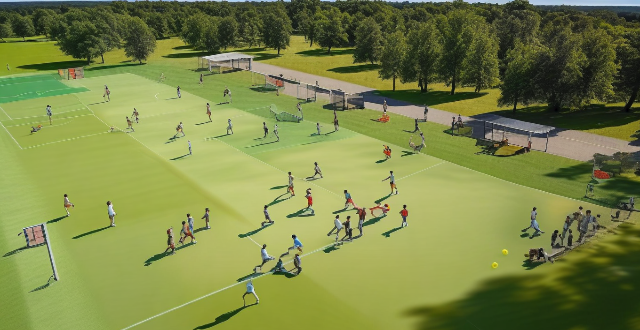
What is the influence of sports on leadership skills development among adolescents ?
This article discusses the influence of sports on leadership skills development among adolescents. It highlights the importance of leadership skills and how sports can contribute to their development through communication, problem-solving, decision-making, teamwork, and self-motivation. The article concludes that sports have a significant impact on the development of essential leadership qualities that are important for success in various aspects of life.

How do I choose a tennis training camp that fits my skill level ?
Choosing a tennis training camp that fits your skill level can significantly improve your game. Here are some tips on how to select the right camp: 1. Assess your current skill level by considering your experience, strengths and weaknesses, and fitness level. 2. Research different camps that offer programs specifically designed for your skill level using online directories, social media groups, and reviews from previous attendees. 3. Check the coaches' qualifications and experience, including their credentials, coaching philosophy, and track record of working with players at your skill level. 4. Consider the quality of the camp's facilities and amenities, such as well-maintained courts, access to equipment, and onsite amenities like locker rooms and dining areas. 5. Evaluate the camp's reputation and success rate by reading reviews, asking for referrals, and contacting the camp directly to learn more about their success stories.

How can team sports help in individual skill development ?
Team sports contribute significantly to individual skill development by improving communication skills, enhancing leadership abilities, increasing self-confidence, bettering time management, improving social skills, promoting physical fitness and coordination, providing opportunities to learn from mistakes, and fostering adaptability.
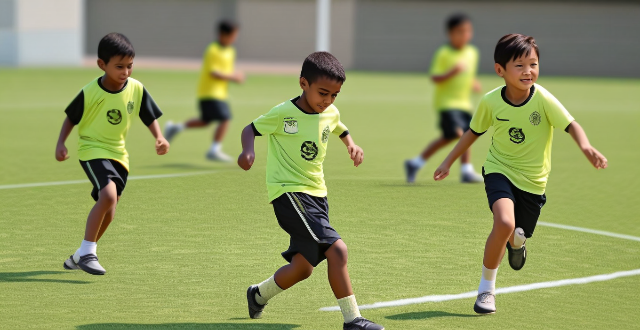
What are the benefits of team sports for child development ?
Team sports provide numerous benefits for child development, including improved physical fitness, coordination and motor skills, healthy lifestyle habits, social skills, self-esteem and confidence, discipline and responsibility, goal setting and achievement, stress relief, resilience, and empathy and compassion.

Can nutrition affect an athlete's skill level ?
Nutrition is vital for athletes' overall well-being and performance, including skill enhancement, recovery, and injury prevention. It affects cognitive function, physical performance, and recovery, ultimately influencing an athlete's skill level. A balanced diet with proper nutrients can help athletes reach their full potential and succeed in their sports.

How important is rest and recovery in skill enhancement ?
The text discusses the importance of rest and recovery in the process of skill enhancement. It highlights the cognitive and physical benefits of taking breaks, such as improved mental clarity, memory consolidation, muscle recovery, and injury prevention. The practical implications include avoiding burnout, enhancing performance, and strategies for incorporating rest into practice schedules. Overall, the text emphasizes that rest is a crucial component of long-term skill development and should be given equal consideration alongside deliberate practice and training regimens.

Is speed reading a natural ability or a skill that can be learned ?
Speed reading is a topic of interest for many individuals who wish to improve their reading efficiency and comprehension. The question arises whether speed reading is a natural ability that some people possess, or if it is a skill that can be learned and developed through practice and training. While there may be some individuals who possess a natural ability for speed reading, it is generally accepted that speed reading is a skill that can be learned and improved upon through practice and training. By employing specific techniques and strategies, anyone can enhance their reading speed and comprehension, ultimately increasing their productivity and knowledge acquisition.

Is it necessary to have a strong math background to learn programming effectively ?
Is it necessary to have a strong math background to learn programming effectively? Programming is a complex field that involves various skills and knowledge. One of the most common questions asked by beginners is whether having a strong math background is necessary for effective learning of programming. In this article, we will explore this question in detail. Mathematics plays a crucial role in programming, especially in areas such as data analysis, machine learning, and game development. However, it is not absolutely necessary for all types of programming. For example, if you are developing simple web applications or writing scripts to automate tasks, a strong math background may not be required. If you plan to work in fields like data science or game development, then having a good understanding of mathematics can be very beneficial. If you feel that your math skills are lacking, there are several ways to improve them through online courses, reading books, practicing problem solving, and joining study groups. With dedication and effort, anyone can improve their math skills and become an effective programmer.
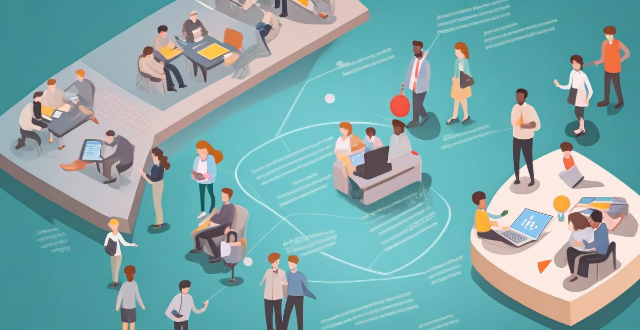
How does sports education promote teamwork and social skills among students ?
Sports education promotes teamwork and social skills among students by teaching cooperation, communication, trust, respect, discipline, leadership, resilience, empathy, and self-esteem. These skills help students succeed in sports and prepare them for future challenges in life.

Are tennis training camps effective for children and teenagers ?
Tennis training camps can be an effective way for children and teenagers to improve their skills and develop a love for the sport, depending on factors such as quality of instruction, level of commitment, and overall environment. Benefits include skill development, learning new techniques, building confidence, and socializing with other young players.

How do I learn to swim ?
Learning to swim requires patience, practice, and perseverance. Here are some tips to help you get started: 1. Find a suitable location: Look for a pool or body of water that is safe and accessible. 2. Get the right gear: Invest in a good quality swimsuit, goggles, and swim cap. 3. Start with basic techniques: Begin by learning basic techniques such as floating, kicking, and breathing. 4. Take lessons: Consider taking lessons from a qualified instructor who can teach you proper techniques and provide feedback on your progress. 5. Practice regularly: Consistency is key when learning any new skill, including swimming. Set aside regular time each week to practice your swimming skills. 6. Stay safe: Always prioritize safety when swimming. Never swim alone, and always follow pool rules and regulations.

How do individual versus team sports differ in their impact on child development ?
Individual sports foster self-reliance and technical mastery, while team sports emphasize social skills and emotional intelligence. Both have unique benefits for child development, and the choice should consider the child's personality and desired skill development. A combination of both might provide the most well-rounded experience.

How does age impact the ability to learn and improve sports skills ?
Age impacts learning and improving sports skills due to physical, cognitive, and psychological changes. Physical changes include decline in muscle mass and strength, decreased cardiovascular fitness, and joint pain and stiffness. Cognitive changes involve slower reaction times, decreased motor coordination, and memory loss. Psychological changes include fear of injury and lack of motivation. By adapting training accordingly, older athletes can continue to improve their sports skills and enjoy participating in sports throughout their lives.
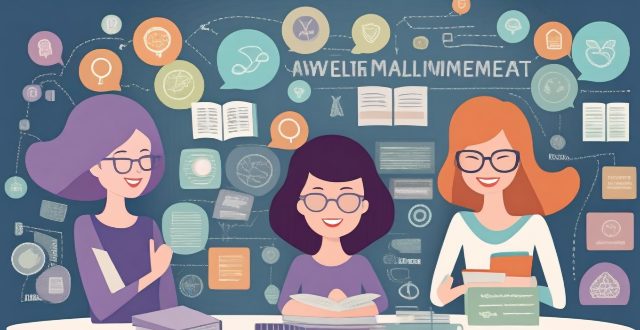
What resources are available to help women learn about wealth management ?
The text provides a summary of resources available to help women learn about wealth management. It mentions online courses and webinars, books, podcasts, and financial planners and advisors as some of the resources that can be used by women to gain knowledge and skills in wealth management. The resources are aimed at helping women take control of their finances and secure their financial future.
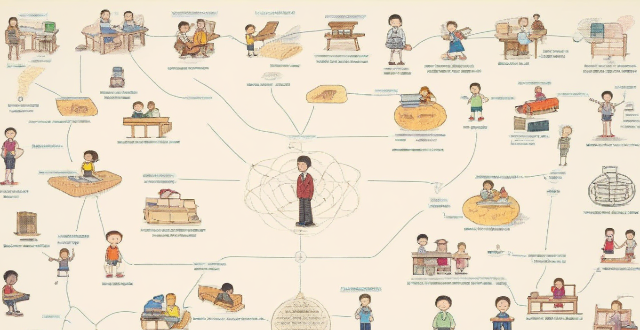
What role should interscholastic competition play in the educational experience ?
Interscholastic competition, including school sports and academic contests, is crucial for students' physical fitness, intellectual growth, and life skills development. It promotes health, skill development, academic achievement, critical thinking, teamwork, leadership, and resilience. Participating in these activities helps students develop transferable skills that are beneficial in various professions and life situations. Schools should continue supporting interscholastic competition as an essential part of the educational experience.

How do I overcome my fear of water and learn to swim ?
Overcoming a fear of water and learning to swim is a process that requires patience, persistence, and the right approach. Here's how you can do it: identify the source of your fear, gradually expose yourself to water, find a supportive instructor, start with basics in shallow water, progress slowly, use relaxation techniques, set realistic goals, celebrate small victories, join a swimming group or class, and always prioritize safety.

How do extracurricular activities contribute to the development of student leaders ?
**The Role of Extracurricular Activities in Nurturing Student Leaders** **Skill Development:** Extracurricular activities offer a platform for students to acquire and refine various skills, such as communication, teamwork, time management, and problem-solving. **Confidence Building:** Involvement in extracurricular activities often leads to increased self-assurance through taking initiative and overcoming challenges. **Interpersonal Abilities:** Engaging in extracurricular activities fosters key interpersonal abilities like networking, empathy, emotional intelligence, and influence. **Real-World Experience:** Extracurricular activities simulate real-world experiences where leadership is crucial, teaching organizational skills and adaptability. **Responsibility and Commitment:** Participation teaches responsibility and commitment through accountability and dedication to practice or training. **Conclusion:** Extracurricular activities serve as a laboratory for students to experiment with leadership styles, make mistakes, learn from them, and grow into well-rounded individuals ready to take on future challenges.
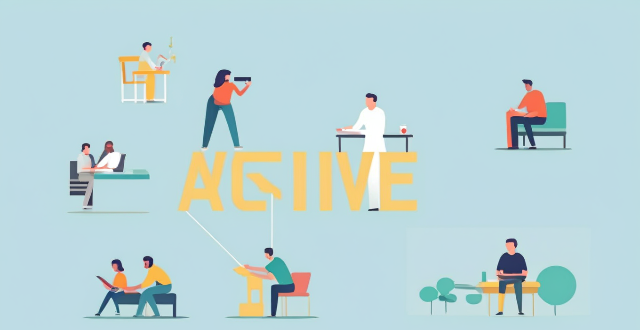
Can extracurricular activities improve academic performance ?
Extracurricular activities can improve academic performance by developing time management skills, increasing motivation and engagement, enhancing social skills and networking, and providing stress relief and mental health benefits.

Are there any age restrictions for attending a tennis training camp ?
Attending a tennis training camp can have age restrictions based on physical maturity, safety concerns, and skill level. Typically, the minimum age requirement is between 8-10 years old, but some camps may accept younger children with parental supervision or permission. There are usually no maximum age limits, as adult players often attend training camps to improve their skills or prepare for competitions. Attending a tennis training camp can provide numerous benefits, including improved skill level, increased fitness, and networking opportunities.
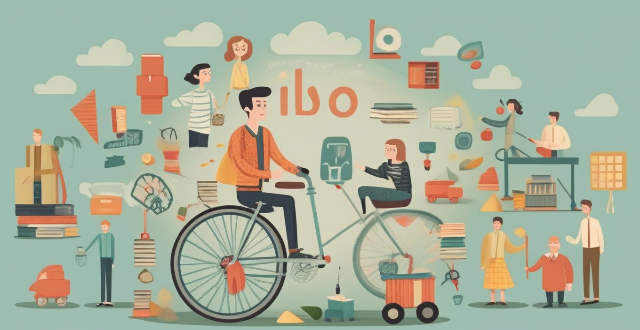
Is there a link between improved comprehension and critical thinking abilities ?
The link between improved comprehension and critical thinking abilities is explored, with a focus on how these skills are interconnected and work together to enhance cognitive abilities. The article suggests that improving one skill can lead to improvements in the other, creating a virtuous cycle of cognitive development. Techniques for improving both skills are also discussed, including reading widely, engaging in debates, and practicing active listening.

How does sports participation influence self-esteem in children ?
Sports participation has a positive impact on children's self-esteem by increasing physical fitness, developing skills and mastery, promoting social interaction and teamwork, and encouraging goal setting and achievement.
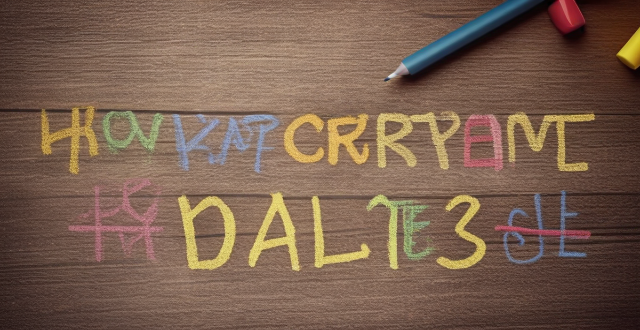
How do sports teach important life skills such as teamwork, perseverance, and leadership ?
The text discusses how sports teach important life skills, including teamwork, perseverance, and leadership. In sports, teamwork is crucial for success, requiring communication, cooperation, and understanding each other's strengths and weaknesses. Athletes learn to collaborate effectively with others, which can be applied in various aspects of life. Sports also teach perseverance by exposing athletes to challenges and setbacks, developing resilience and determination. Participating in sports provides opportunities for individuals to develop leadership skills, such as taking initiative, motivating teammates, and being responsible for the team's success or failure. These skills not only contribute to success in athletics but also have far-reaching benefits in various aspects of life.

How can women improve their relationship management skills ?
Managing relationships is a crucial life skill that helps individuals navigate personal and professional connections effectively. For women, enhancing relationship management skills can lead to improved communication, deeper connections, and increased satisfaction in various aspects of life. The key areas to focus on include empathy and active listening, clear and honest communication, conflict resolution, boundary setting, self-awareness and personal growth, and building trust and loyalty. By practicing these skills, women can enhance their relationship management abilities and lead more fulfilling and harmonious lives.

Are there any apps or software that can help me learn speed reading ?
There are several apps and software available to help improve speed reading skills. These include Spreeder CX, Outread, ReadSpeeder, Sorcery!, and Velocity. Each tool has unique features such as word-by-word display, sequential word highlighting, rapid serial visual presentation, memory training exercises, and practice exercises. Choose one that suits your needs and preferences, and start practicing regularly to see improvements in reading speed and comprehension.